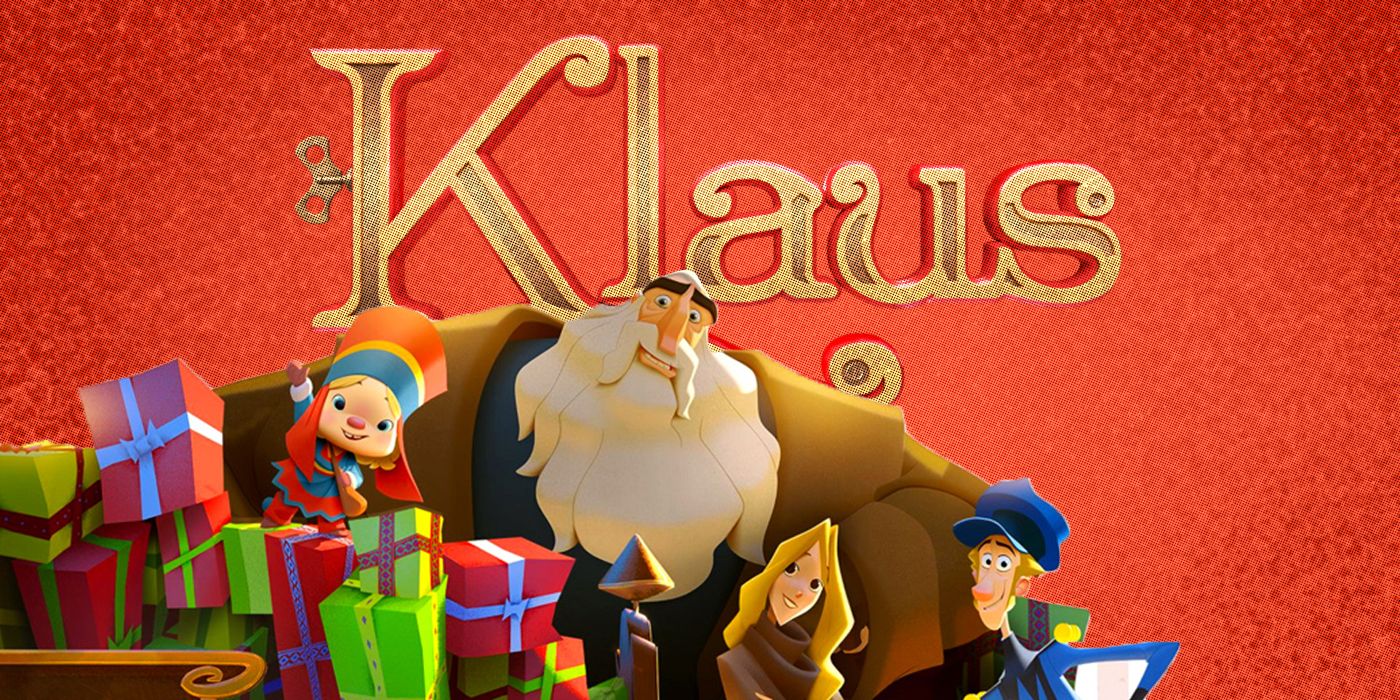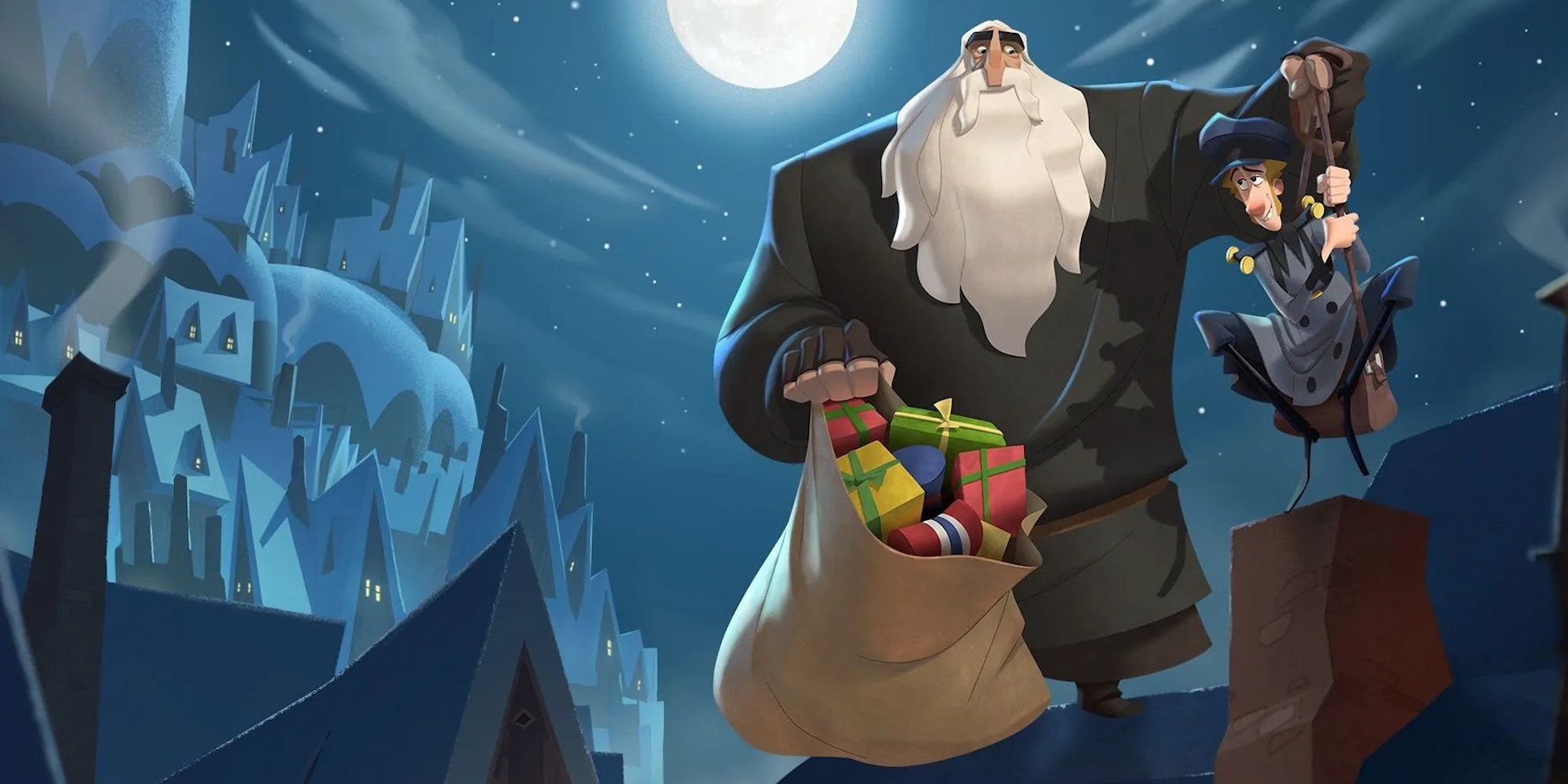Sergio Pablos' 2019 animated film Klaus is the latest in a long line of Christmas films and specials that seek to humanize and give a definitive origin story of the jolly old elf himself, Santa Claus. While films like Santa Claus is Comin' to Town and Tim Allen's The Santa Clause take it upon themselves to explain the logistics of what Santa Claus does and what he is, Klaus is not only the best film to approach the thesis of bringing Santa to life, but is also the only version of the character I feel effectively celebrates the root appeal of the holiday icon and the spirit of the season.
'Klaus' is Not a Typical Santa Claus Origin Story
Santa Claus’ portrayals in film range from being an unambiguously militaristic/corporatized job title like in Arthur Christmas or Elf to an omnisciently divine presence like in The Polar Express. These films position Santa Claus as an idealized symbol or an obligated occupation that is surrounded by the themes of charity and selflessness rather than practicing them itself. Films like these also revel in the mechanics of Santa lore to hypothesize how Santa exists as opposed to why.
Klaus largely demythologizes Santa by exploring his motives as a person and what drives him internally to give of himself, not as a job holder or a magical creature, but as only a human being could. Klaus peppers itself with moments that allude to familiar Santa mythos and gives cleverly formulated explanations of the logistics of Santa’s job such as going down chimneys, the notion of flying reindeer, and the ultimatum of the naughty list. These moments grant the film creative leeway in explaining this iconography and how they pertain to the story but are ultimately incidental to what the film's real purpose is: exploring the effect the presence of selflessness can have on the world.
'Klaus' Champions Human Selflessness That Transcends the Holiday Season
The primary intent behind the exploration of Santa in Klaus is to demonstrate the effect the act of giving can have on the world through Santa as a man, championing the idea of selflessness inspiring those around you, whether you are Santa at Christmas or not.
Klaus is undoubtedly a Christmas movie by the very nature of its concept, but it operates on an almost secular view of the holiday by treating the presence of Christmas as less of a defining reason for its message or dominant justification for it, but rather the culmination of what the movie was already heralding as a universally human quality. The film tells the story of Santa at an interpersonal human level by highlighting the core principle of goodwill behind why Klaus does what he does and the effect it has on others, despite the holiday.
This film’s Santa, simply known as Klaus and voiced by J.K. Simmons, starts off as just a broken man, first and foremost. Living alone in the woods as a hermit, Klaus steals himself away from others to dwell in his own heartbreak of losing his wife, with whom he had plans to raise a family and make children’s toys for. It wasn’t until his unlikely partnering with reluctant postman Jesper Johannson (Jason Schwartzman) that Klaus was able to rekindle his passion for giving. The first scene in which Klaus and Jesper deliver a toy under cover of darkness and watch the child’s pure joy at receiving it is a humble, yet monumental event that kick-starts the chain of kindness that changes the feuding town and its people for the better. The actions of Klaus and Jesper are not a byproduct of the expectations of the holiday season of the job of being Santa, but by genuine altruism that grows and inspires over time across an entire community.
By the film's end, the good will that Klaus and Jesper act upon and inspire in others comes from a place of genuine sincerity that is learned and nurtured over time by perpetual kindness found around them, acting on the idea of an act of good will always spark another, regardless of the season or the people. Klaus posits that Santa Claus did not come into being as a force of magic, seasonal circumstance, or nature, but by the humanistic spirit of giving that inspired him as a person, which in turned inspired others to give and showing that Santa is not the only one capable of changing the world through selfless giving. This is my favorite Santa Claus film because it treats Santa as a person first, and the act of giving as a true selfless act that isn't reliant on any holiday or any one person's responsibility.




